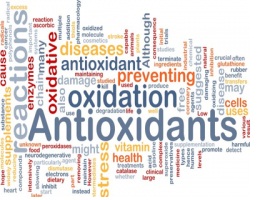- Home
- Editorial
- News
- Practice Guidelines
- Anesthesiology Guidelines
- Cancer Guidelines
- Cardiac Sciences Guidelines
- Critical Care Guidelines
- Dentistry Guidelines
- Dermatology Guidelines
- Diabetes and Endo Guidelines
- Diagnostics Guidelines
- ENT Guidelines
- Featured Practice Guidelines
- Gastroenterology Guidelines
- Geriatrics Guidelines
- Medicine Guidelines
- Nephrology Guidelines
- Neurosciences Guidelines
- Obs and Gynae Guidelines
- Ophthalmology Guidelines
- Orthopaedics Guidelines
- Paediatrics Guidelines
- Psychiatry Guidelines
- Pulmonology Guidelines
- Radiology Guidelines
- Surgery Guidelines
- Urology Guidelines
Novel Antioxidant that reverses Vascular Aging within 6 weeks

Blood vessels grow stiff with age largely as a result of oxidative stress, the excess production of metabolic byproducts called free radicals which can damage the endothelium and impair its function. During youth, bodies produce enough antioxidants to quench those free radicals. But with age, the balance tips, as mitochondria and other cellular processes produce excess free radicals and the body's antioxidant defenses can't keep up.The researchers at the University of Colorado Boulder have found that Older adults who take a novel antioxidant that specifically targets mitochondria, see age-related vascular changes reverse by the equivalent of 15 to 20 years within six weeks.The study has been published in American Heart Association journal Hypertension.
After six weeks, researchers assessed how well the lining of blood vessels, or the endothelium, functioned, by measuring how much subjects' arteries dilated with increased blood flow.Then, after a two-week "wash out" period of taking nothing, the two groups switched, with the placebo group taking the supplement, and vice versa. The tests were repeated.
The researchers found that when taking the supplement, dilation of subjects' arteries improved by 42 percent, making their blood vessels, at least by that measure, look like those of someone 15 to 20 years younger. An improvement of that magnitude, if sustained, is associated with about a 13 percent reduction in heart disease, Rossman said. The study also showed that the improvement in dilation was due to a reduction in oxidative stress.In participants who, under placebo conditions, had stiffer arteries, supplementation was associated with reduced stiffness.Oral antioxidant supplements like vitamin C and vitamin E fell out of favor after studies showed them to be ineffective.
"This is the first clinical trial to assess the impact of a mitochondrial-specific antioxidant on vascular function in humans," said lead author Matthew Rossman, a postdoctoral researcher in the department of integrative physiology. "It suggests that therapies like this may hold real promise for reducing the risk of age-related cardiovascular disease."
"This study breathes new life into the discredited theory that supplementing the diet with antioxidants can improve health," said Seals. "It suggests that targeting a specific source-mitochondria-may be a better way to reduce oxidative stress and improve cardiovascular health with aging."
For more reference log on to: http://hyper.ahajournals.org/content/early/2018/04/13/HYPERTENSIONAHA.117.10787

Disclaimer: This site is primarily intended for healthcare professionals. Any content/information on this website does not replace the advice of medical and/or health professionals and should not be construed as medical/diagnostic advice/endorsement or prescription. Use of this site is subject to our terms of use, privacy policy, advertisement policy. © 2020 Minerva Medical Treatment Pvt Ltd